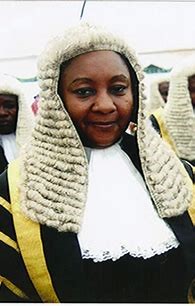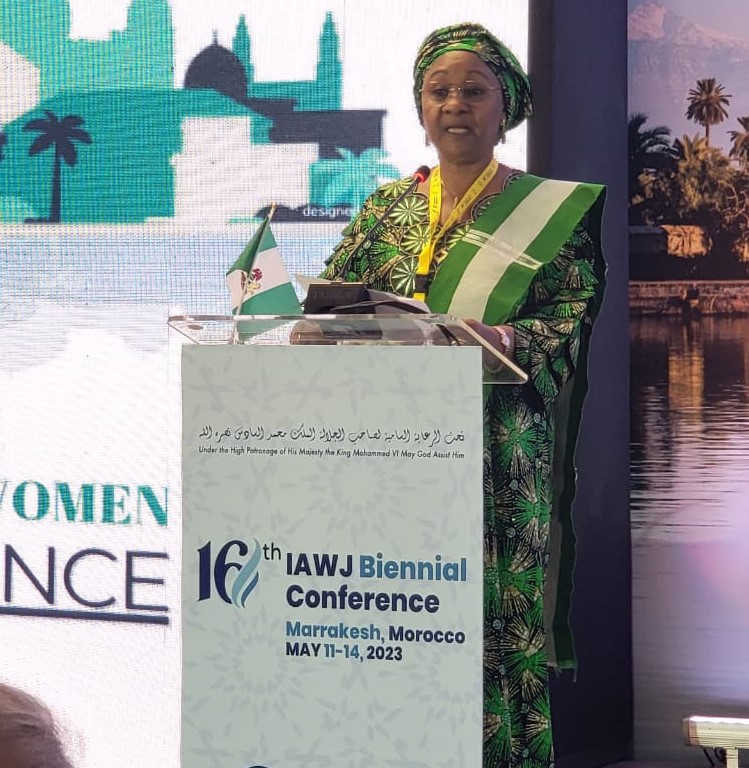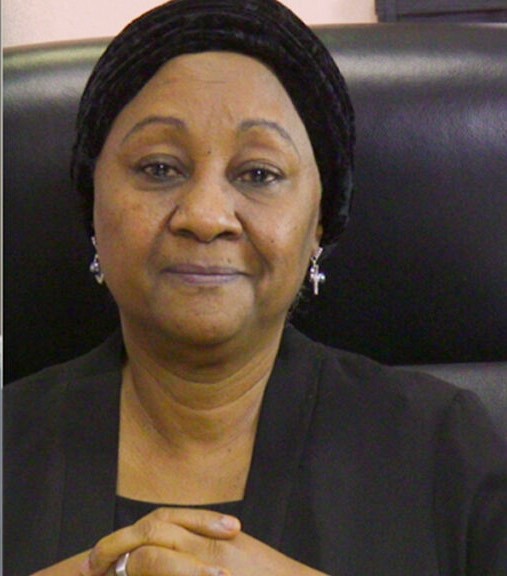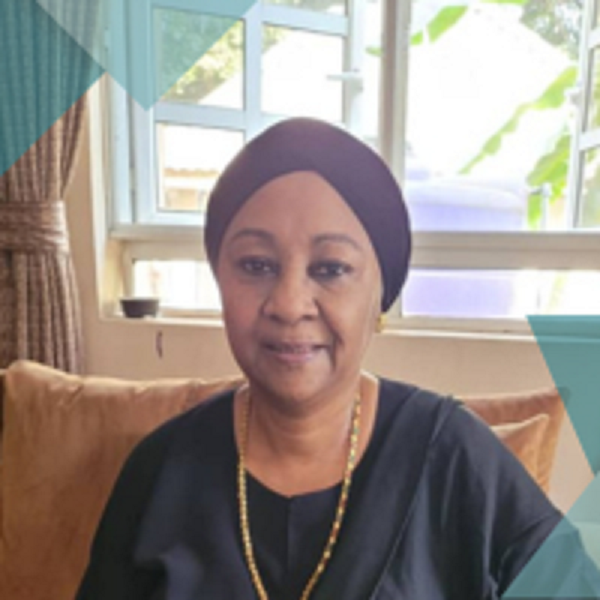By Lillian Okenwa
President of the International Association of Women Judges (IAWJ), Hon. Justice Binta Nyako has warned against the dangers of sextortion, charging persons in authority to carry out their roles without extorting sex from subordinates.
Speaking with Law & Society Magazine in Abuja, Justice Nyako who was inaugurated last month to lead women judges from all over the world disclosed that one of the programmes close to the association’s heart is advocacy against sextortion.

Explaining that sextortion is “when you use sex to extort favours” she further stated it is a continuous programme they organize for young people “and we started from secondary schools. It is when someone in authority demands sex for favour from subordinates. It happens in the judiciary, legislature, executive it happens everywhere.”
Nyako said “every opportunity I have, I talk to secondary school students about that. Imagine a scenario where a child comes home with the best result and you know she’s not that smart or comes home with a bad result and you know she’s not a dullard. This indicates the child might have been intimidated by a lecturer or senior student for sex for marks. It is a programme IAWJ does in conjunction with NAWJN. That is the National Association of Women Judges, Nigeria.

“The program came to us from Canada where you have immigration judges who extort sex from wives of immigrants for them to be given immigration status. The Chief Justice of Canada who was a woman brought this to our knowledge. In the UK traffic wardens have said to beautiful women ‘show me your breast and I will not give you a ticket.’ I have had an opportunity to speak with members of the National Assembly who attended one of our programmes and I told them the way politicians in Nigeria behave is not acceptable to women. Why do you call your meetings at 3am? Every woman will be in her house with her husband and children at 3am. Then they have what they call anointers in the political arena where they extort sex from women to give them tickets. We also have superiors in factories and elsewhere asking women for sex in exchange for time off or extra allowance.
“The one that touched most of us was what happened in Tanzania. In Tanzania it’s very bad. Oftentimes staff of court needed permission from their judges to do overtime so they can get paid extra allowance. A particular court staff was sick and a female judge asked why she’d been falling ill. It was then discovered she had HIV. How did she get HIV? It turned out she had been sleeping with a judge that had HIV. She had passed the HIV to her husband and family. The judge had also been sleeping with the house help in the house and his son had been sleeping with the house help. It was a whole family of about 10 or 11 that came down with HIV. Some of them passed on. It then became necessary for us to bring this to the fore.

“We can’t sweep everything under the table. We have to rise with one voice against it. I have spoken to judges of this court about it in our conferences. Every opportunity I’ve had, I speak about it. When my lord Justice Ogunwunmiju was NAWJN President, she made pamphlets sensitizing people about this matter.”
According to Her Lordship, one of the programmes the women judges equally initiated, and which the National Judicial Institute (NJI) has taken over is the Jurisprudence of Equality Project (JEP). “It’s a programme where we’re asking for equal opportunities and level playing ground for everybody. We insist that women should not be segregated against on the basis of sex. If she is the best qualified, give her the job. If not, we’ll understand.”
Another outstanding initiative of the IWAJ was assisting distressed women judges in Afghanistan to leave the country when the Talibans struck in 2021.
“When the Taliban government took over in Kabul, the women judges became targets as they had tried cases and convicted a lot of people. The Talibans released all their members that were in custody and started targeting the women judges so there was a need to evacuate them from Afghanistan. With the help of the association, we were able to reach out to governments that have friendly policies. American government helped with their aircrafts and they were evacuated. We still have some that are still there with their families but we were able to evacuate 200. We sourced for funds to help them and their familiar start life in their new countries of abode. These are people who just got up and left everything. No more means of livelihood or income. We are still looking for ways to get the other women judges out. It’s tricky now because the peak period has quietened.
“Sometimes we get them out by road to neigbouring countries into safe houses and from there the countries with friendly immigration policies will allow them in. Some countries have been magnanimous to allow them read diploma courses to acquaint them with their language between 9 months and a year to enable them get employment. Otherwise, they are unemployable because their legal system is different. Imagine living a very comfortable life and you’re suddenly an IDP.”
Nyako who was Solicitor General of Katsina State from 1989 to 1992 and Attorney General between 1994 and 1996 recounted an incident that once made the religious leaders in the state call for her head.
“We had a proliferation of mosques in particular areas. Somebody will build a house and have a mosque by the gate. Two, three doors after, another will build a mosque in his house. We had those issues but there was a particular one who happened to be my cousin. His house was in a bend. The major road veers by his house so when a car is coming from the other side you can’t see it. Right by the bend he built a mosque. That obstructed vision more so I advised that they mark the mosque for demolition and demolish it.
“All the Ulamas in Katsina called for my head. I think there was a fatwah on my head then but I explained to them that security of lives and property is foremost. That that obstruction was causing a lot of accident. But they said how can I authorise the demolition of the house of God. I stood my ground. But before then, they said why should a woman be Attorney General, it is unIslamic, this, this, and that. But I was convinced that I was doing the right thing. Once I’m convinced, I’m doing the right thing it will a take a lot to convince me otherwise. I am not averse to being convinced but you must prove to me that I am wrong.”
Justice Nyako also revealed how on account of having served as Solicitor General for three years without an Attorney General she convinced the then Attorney General of the Federation, Prince Bola Ajibola to make some alterations to the Armed Robbery Decree.
“If you look at the Armed Robbery Decree, you will find contained therein that where there is no attorney General, the Solicitor General can act. I put it there. During the Babangida era, all states Attorneys General were part of the Armed Forces Ruling Council (AFRC). During the AFRC meetings if Prince Ajibola needed a quick amendment, he picked those of us that are draftsmen and we’d go to another office and make the corrections for him. That lacuna of Katsina at a time having a Solicitor General for three years without an Attorney General was brought to his attention and he said we should go and make the amendment. That was how we incorporated that provision into the Armed Robbery Decree. Because I had had a firsthand experience as Solicitor General of katsina I inserted that provision.





